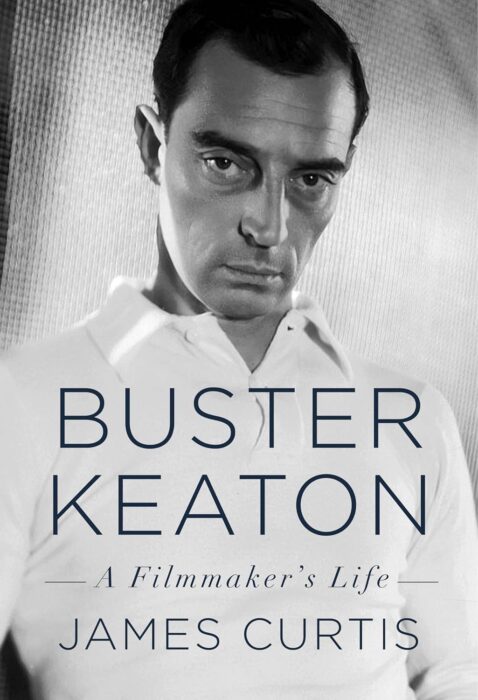Buster Keaton: A Filmmaker’s Life by James Curtis has to be the best biography I’ve read in my entire life. With the specific distinction of “biography” and not “autobiography”.
It’s a long book, the audiobook form extends for a good 31 hours, and I should emphasize GOOD because I don’t think I would’ve sat for so long unless the contents were entertaining. And what makes the book special is that its subject allows it to tackle a super interesting time of constant change.
To oversimplify: Keaton lived through and participated in theater, silent black and white movies, black and white movies with sound, color movies, recorded TV, and live TV. He often went back and forth, going back to theater after getting into TV, getting into movies after doing theater and so forth.
It really makes you think how his is a career that easily spans from Roscoe Arbuckle to It’s a Mad Mad Mad Mad World. And because the book isn’t strictly in first person but rather just very focused on Keaton it has the leeway to paint the scene of what the times were like to contextualize then what Keaton went through.
This results in very interesting insights like how when “talkies” (movies where the actors talked on screen rather than just having a music track) started being produced, even people with good voices wouldn’t make a smooth transition because the primitive recording equipment meant only certain voices would record properly. I especially love the mention that sound would only be recorded with one person talking at a time because otherwise it would “confuse both the equipment and the audience”, or how for a movie Keaton was featured with an actress that wasn’t the prettiest or even the funniest but had a voice that recorded well and wasn’t taller than Keaton.
There’s also Keaton’s interesting insights into going from one medium to another. For example he lauded movies because “in theater you have to make a set that looks like a train, but in movies you can take audiences to the train” (which admittedly made me a bit sad to think how even that’s been lost in movies), or how he would have no problems with live TV shows but would have difficulties with pre-recorded shows, or how he equated recording a TV show to basically being told to film about 34 of his old films and the woes that imposes into writing and how it becomes repetitive.
Small sidenote, there’s a section where Keaton is quoted as saying something along the lines of “Try doing that with a less trained butt” (replying to how a comedy routine would go so well) and the audiobook narrator couldn’t hide cracking up on the read of it.
Back to the topic, the book is amazing because it’s not only the life of a sincerely amazing man whose body crumbled while his spirit clearly wanted to keep going (at age 70, mind you), but it’s the story of modern pre-internet entertainment. Not just the mediums themselves but the politics behind them, from the laws alleging a moral panic to stop child performers in Vaudeville, to the studio system of Hollywood, to even rights disputes for control over Keaton’s body of work.
The book left me thinking quite a few things afterwards. A notable one was how… unpleasant Natalie Talmadge (Keaton’s first wife) is depicted but not in a way where editorializing sneaks into it, but rather the fact that she reminds me of so many people I’ve known in my life that I’m not particularly fond of.
The biggest one, however, is the title of this post.
Something noticeable through all of Keaton’s career was that he preferred smaller productions, shorter productions. The kind where there was no red tape if a reshoot was needed, where everyone contributed to everything.
Not only that but he was always keen and open about new technologies. From how he went to the movies to how Roscoe Arbuckle taught him how the cameras worked, to how he could see a future in TV when he got one in his house.
I don’t like speaking for other people, nor do I ever presume to know the depth of someone after reading a really long book. However, based entirely on the picture painted by the book of his character and life, Keaton sounds like the type of person that would see the fact that everyone has a camera in their pocket and anyone can upload what they made online for others to see and think it’s the coolest thing ever.
Because it kinda is, isn’t it? It’s easy to forget between perennial boomerisms and the threat of whatever snake oil techbros are selling as The Future that technology is kinda cool.
